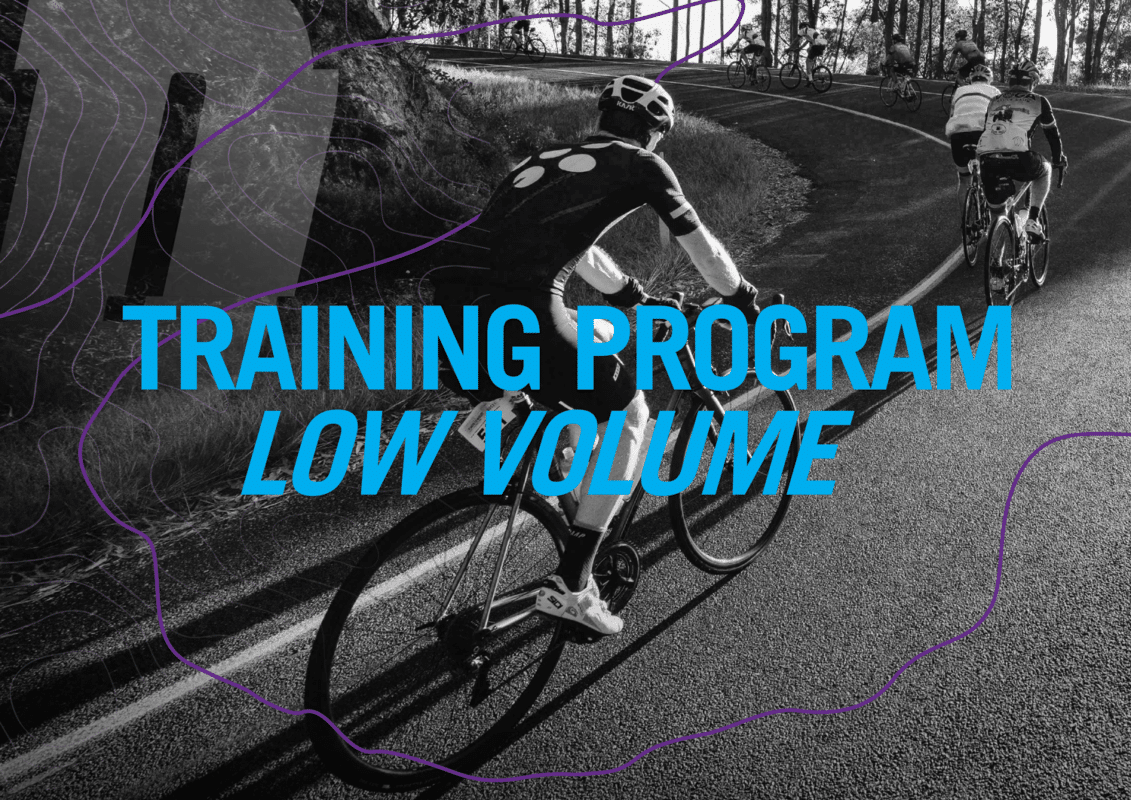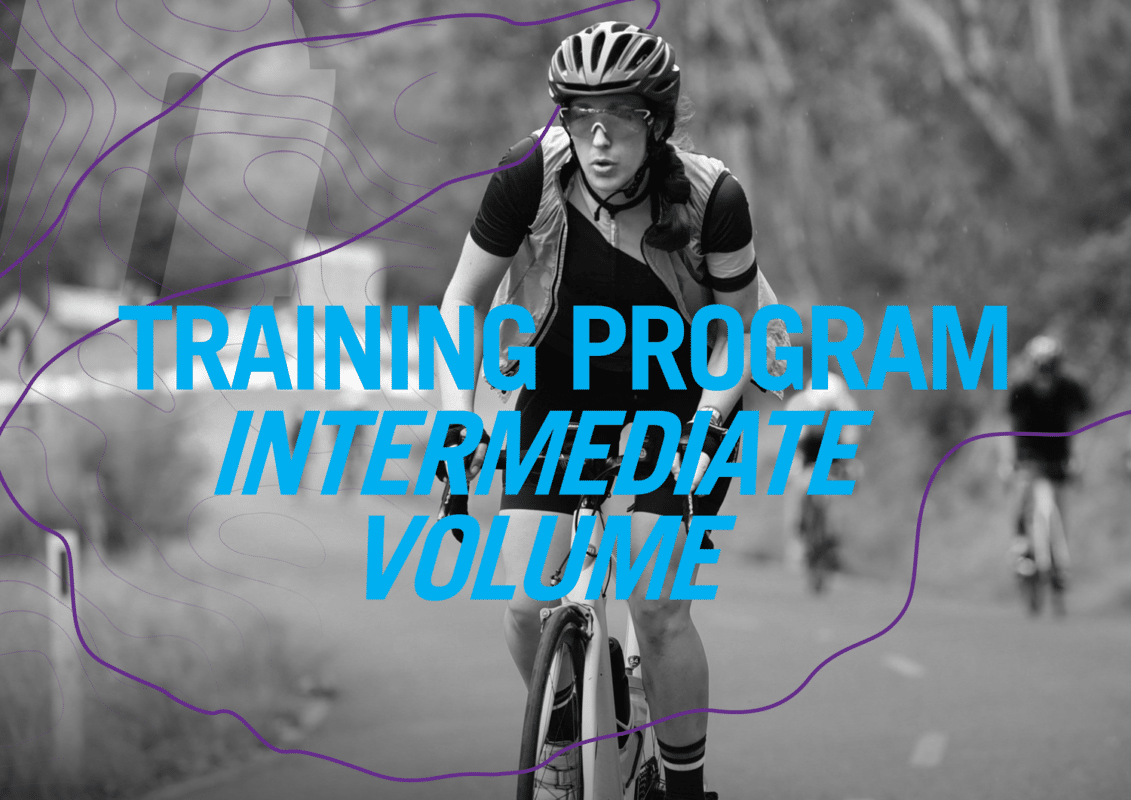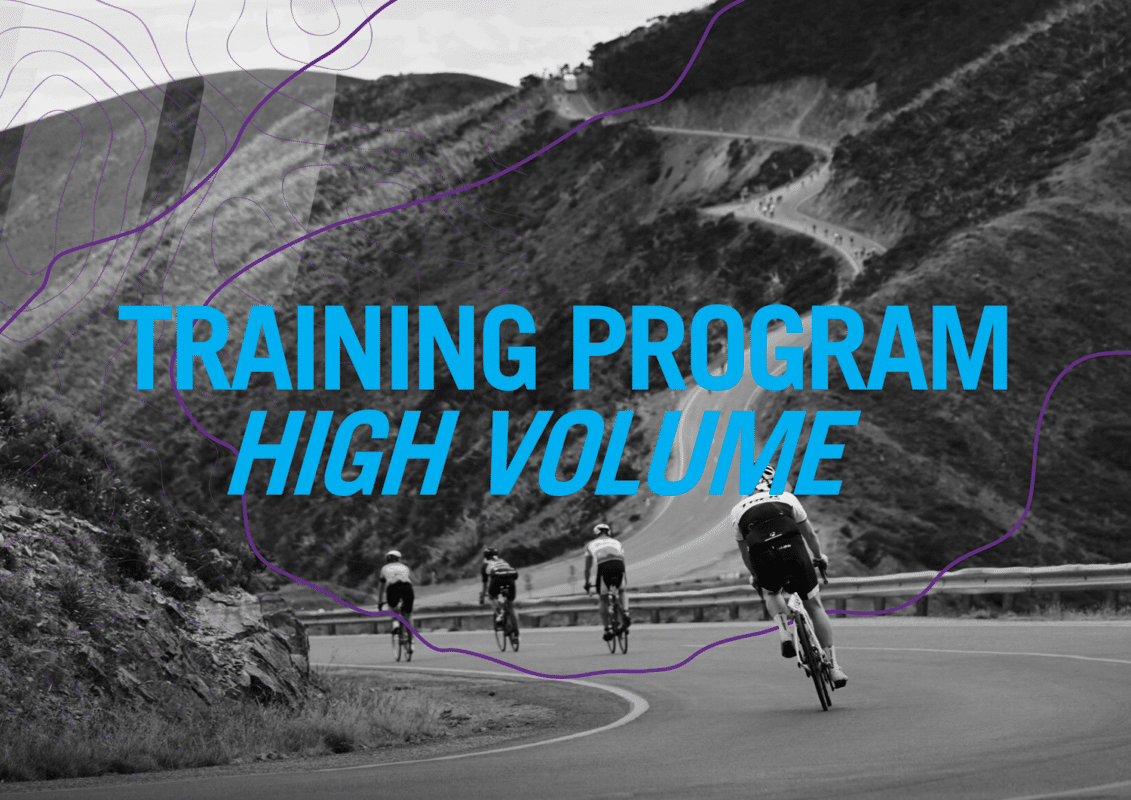Peaks Challenge
Monday 18 November 2024 - Sunday 9 March 2025
16 week training programs
Your dedicated cycling coach Dr. Stephen Lane has developed three tailored training programs (with different volumes of training) to help smash your goals. The programs assume you will kick-off week one on Monday 18 November 2024 with some base kilometres already in the legs.
You can download the free PDF training programs below or purchase and download via Training Peaks if you would prefer to upload your data, monitor your progress and use the SMART Ergo files to perform indoor trainer sessions.
To learn more about how to effectively use the programs before getting started, check out Stephen’s ‘Intro to training zones‘.
Getting started
To compliment these training plans we’ll schedule a series of training rides in the lead up to the event. Plus, our Peaks Challenge training camp is back in early February to help you dial in your preparation for the big dance!
Plus, it is always a good idea to work on building your base fitness before diving into a training program.
Below are a few FAQs on how to integrate the training plan with other rides and how to modify the training plan to navigate any ‘speed humps’ that appear on the road to Peaks Challenge.
Training program FAQs
Choose the program that has roughly the amount of hours you believe you can complete each week. Typically, for people with limited available time for training due to work and family commitments my recommendation is to ‘’ride as much as you can” each week.
The main rule to follow is to complete the ‘main set’ for each session and just ride easy ‘aerobic’ for any extra additional time you can ride. This might be by adding an extra hour or two on a particular day or performing an extra ride on a day designated as a rest day.
Typically the weekday sessions can be completed indoors but please try and do your best to perform the weekend longer rides outdoors on some hills if possible.
If you are unable to ride for the prescribed duration in the training plan then try to ride as long as possible outdoors and add in some extra duration on an indoor trainer if available. Typically two hours is as long as I would recommend for an indoor session. In this time try to complete the ‘main set’ as prescribed then add some extra time as a ‘free ride’.
Use the hills and group ride features on platforms like ‘Zwift’ or try a platform like ‘FullGaz’ that has video recordings where you can ride climbs like Hotham and Falls Creek that are part of the Peaks Challenge course.
There is great benefit in riding with other people who are training for Peaks Challenge, so I would always suggest joining a ride if you can.
We will do our best to align the training ride session with what is in the training plan. However, If the session does differ then focus on trying to get in the prescribed duration for that week to keep with the progression of volume in the training plan.
The training camp is a great way to test your fitness and gain some confidence in your ability in the final lead up to the event. The camp caters to all abilities ranging from 13 hour target riders all the way to 8 hour riders.
The camp will help you determine your suitable ‘pace group’ for the event and provides information sessions including nutrition and key course tips. It is a great way to learn all the tips and tricks from experienced riders a month out from the event!
Yes! The weekly training durations are only a guide. If you have the spare time and it’s a nice sunny day get in some extras!
Just be mindful of any key sessions that are in the coming days. Some sessions are about ‘quality’ and focus on making you faster. Save some legs so you can did deep and gain the benefits of a harder session.
If you need rest… rest.
If your body isn’t up to the challenge of a particular training session, then be smart and rest. You may need just the day off or may be a couple of days to get over a sickness. Taking a break for a couple of days, let the body ‘absorb’ the training and then resume training when you feel better.
Consistency is the key to improving fitness but recovery is just as important so don’t be scared to take an day off here or there. If you do miss a session or two don try and make them up. Just continue on with the program. If you are off for an extended period then start easy and ease back into it with some aerobic riding before you attempt any intense sessions.
Training tips & resources
Training Session: 2 x 20 min 90% FTP efforts
Dr Stephen Lane talks through one of his favourite training sessions 2 x 20min @ 90% FTP.
In this video he discusses how to approach the efforts and the key things to keep in mind when you are incorporating it into your training whether it be on the erg or on the road.
Projected finish times
Stephen runs through how you should be feeling after a big functional threshold training block and the importance of recovery weeks.
He also covers some tips on how to decide what your target finish time will be based on existing Strava times. It’s important to have a clear plan in mind of what pace you’re aiming for before event day.
Resources
Pacing Tactics
In this video Stephen and James Garriok (9-hour wave leader) discuss pacing tactics and talk you through how to get the best of out our body on the event day.
Stephen and James help you prepare a sound game plan for the big day and give you an insiders tips to the ‘do’s’ and ‘don’ts’ on how to achieve your best ride time.
Packing essentials
2022 training camp highlights
Course tips
Join Stephen for an on location video where he covers all the critical points of the Peak Challenge course.
Falls Creek to Harrietville
Video #1 covers from Falls Creek to Harrietville, including the first decent and what you should look out for.
Harrietville to Anglers Rest
Video #2 covers from Harrietville to Anglers Rest, including hitting the Meg, CRB Hill and refuelling at Dinner Plain.
WTF to Falls Creek
Video #3 covers the final leg of Peaks Challenge as Stephen journeys from the iconic WTF corner up the grueling back of Falls Creek.
This leg will either make or break your goals and aspirations.
Peaks Challenge early bird tickets now open! It's time to take on the legend.
Commit NowBecome our friend
Find out more about Bicycle Network and support us in making it easier for people to ride bikes.




